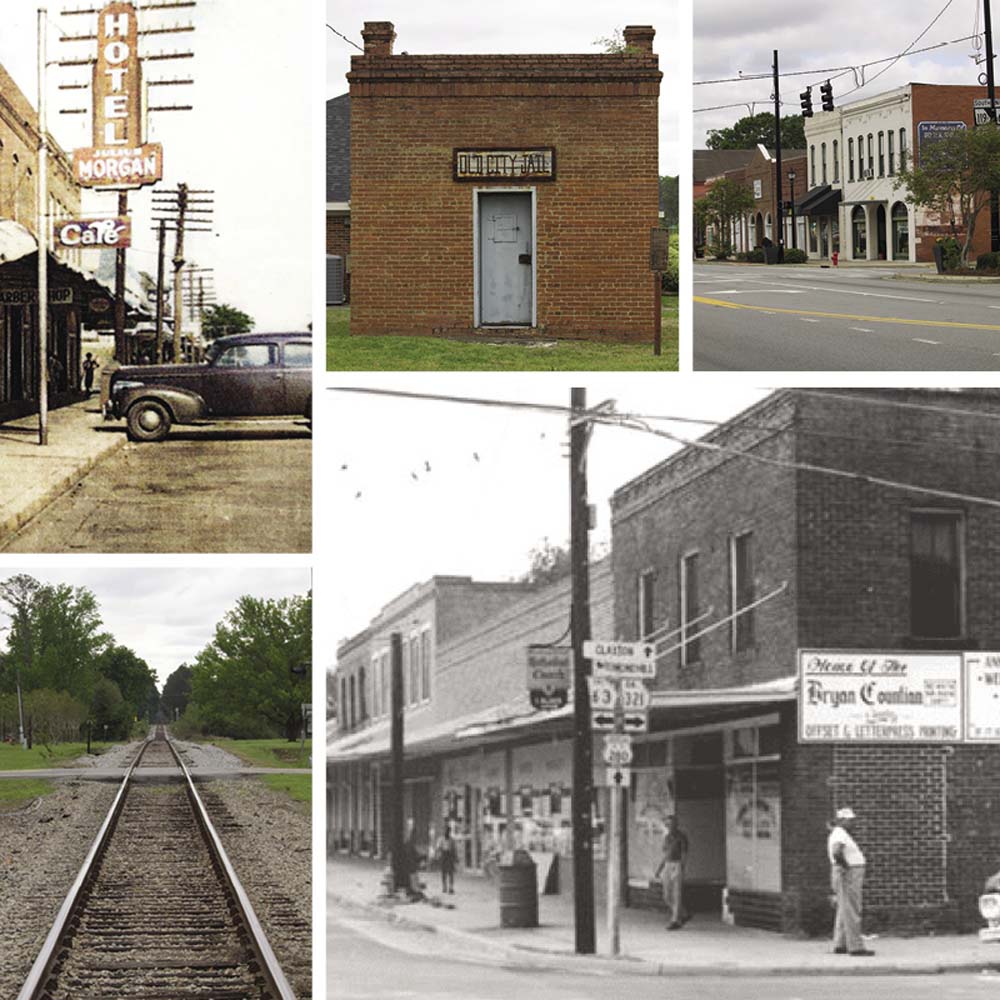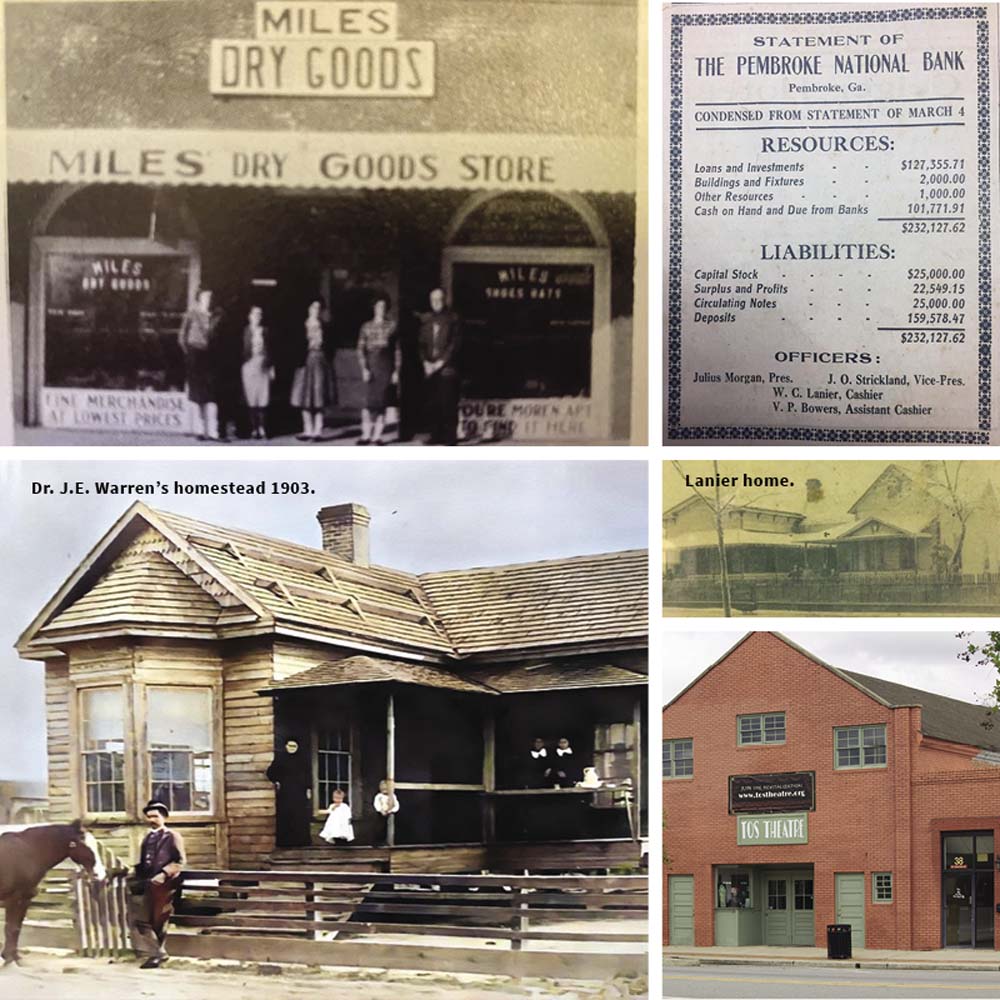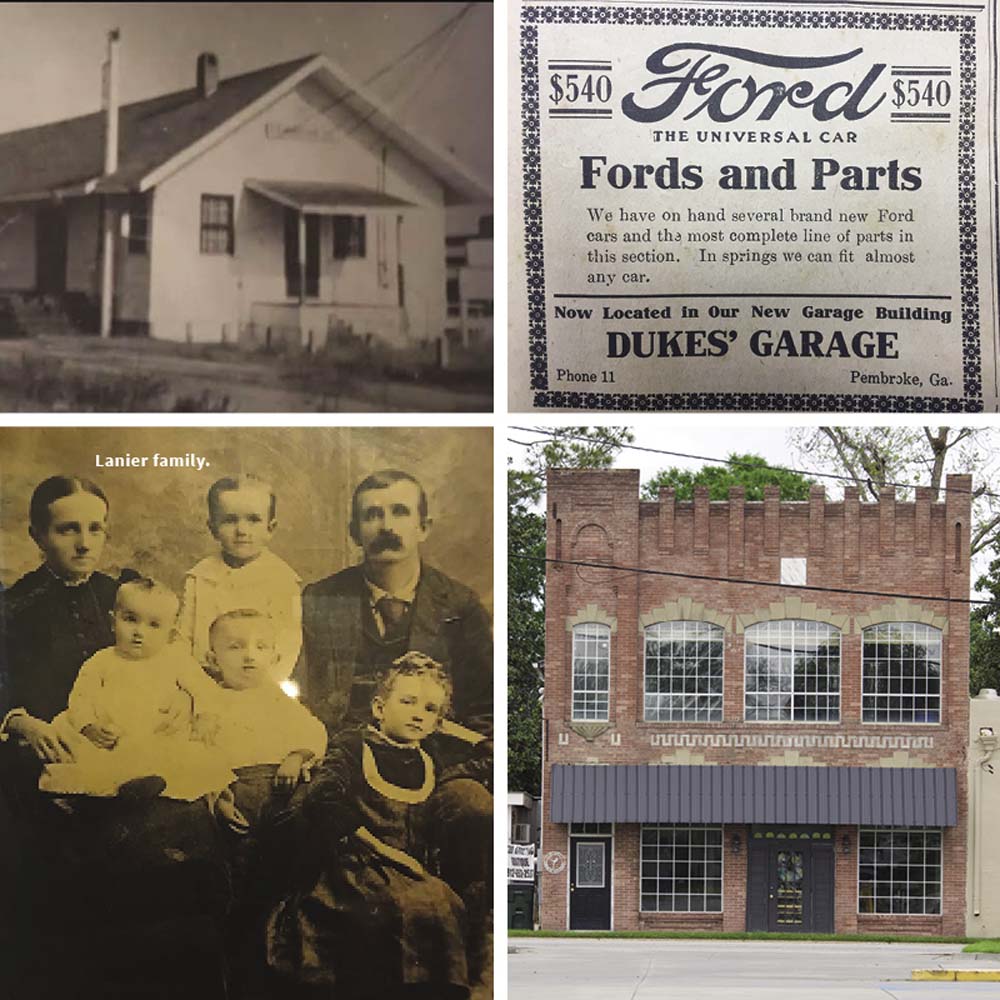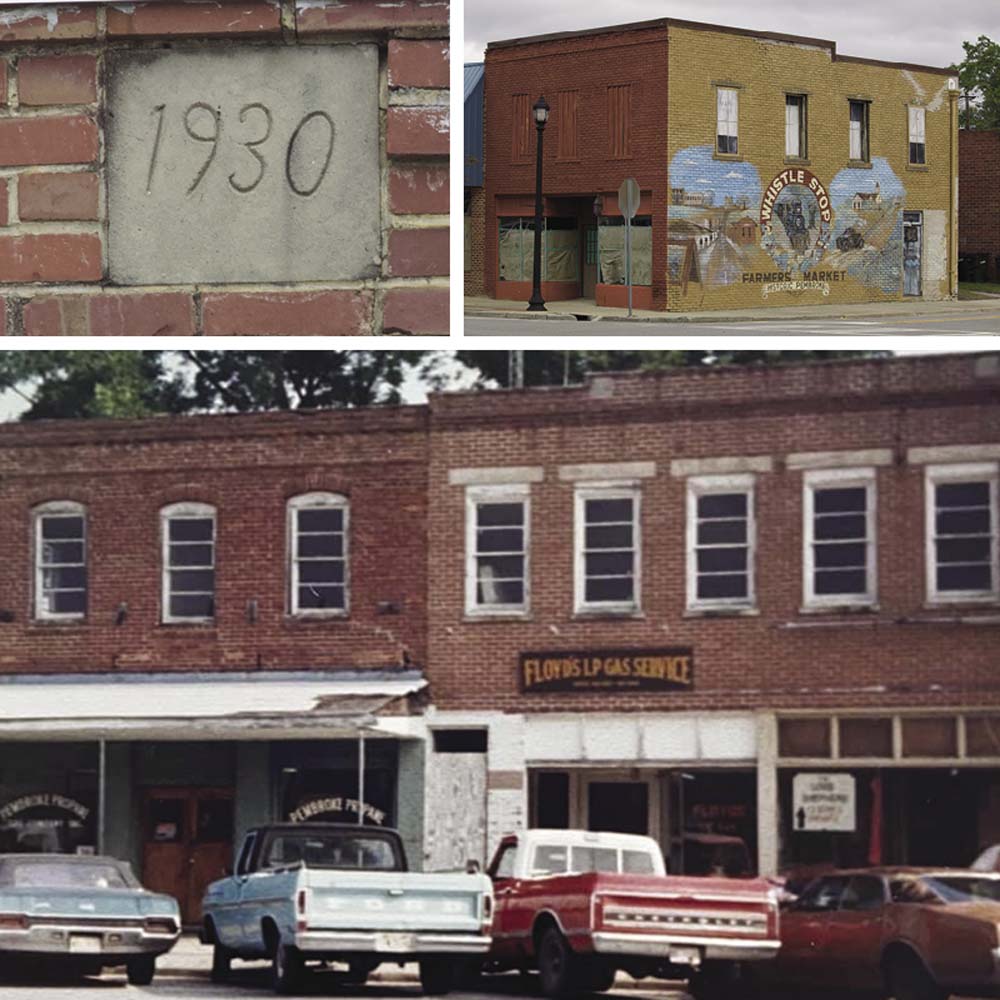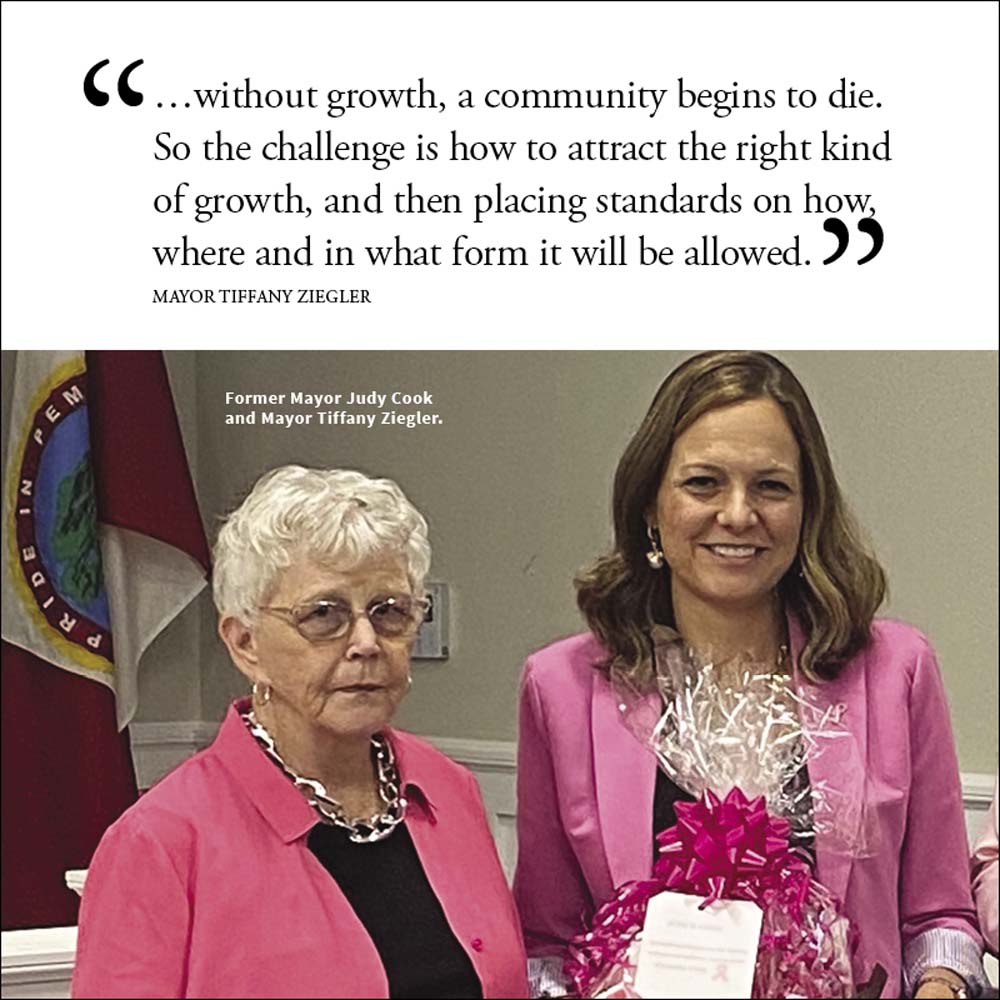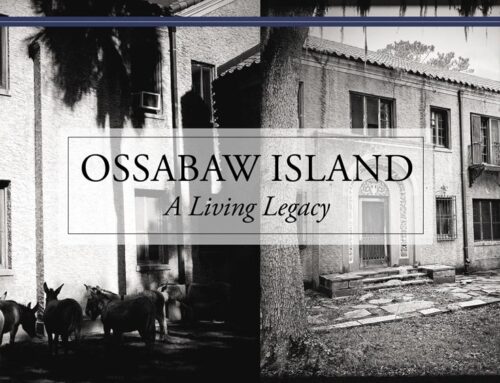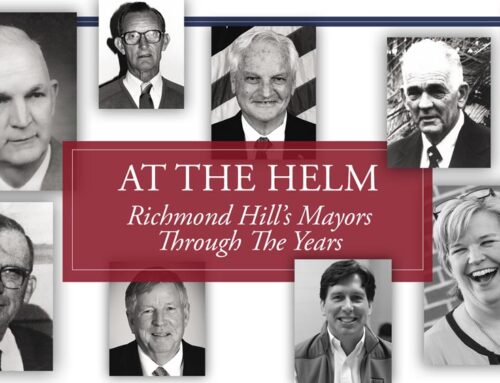
Preserving the City of Pembroke
A Soul. A Heartbeat. A Spark.
Words By Ben Merrill
Photos By Alex Floyd and Ben Merrill
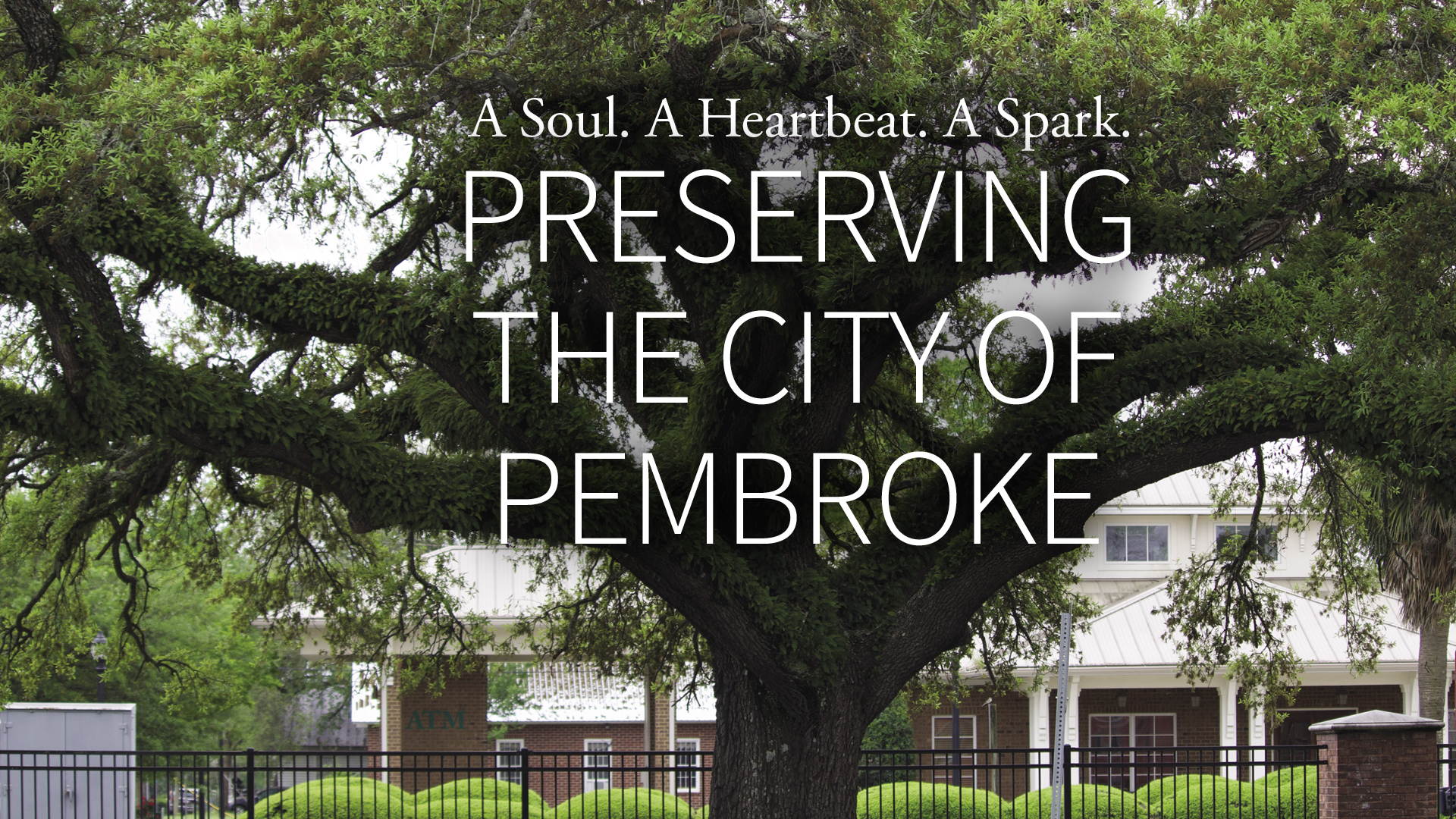
Driving into Pembroke, one can almost feel how life was at the turn of the century—the 20th century that is. The village still hugs the railroad, remaining largely unchanged from what it looked like during its early-century boom years. There are a couple of restaurants, a few shops and a soon-to-be-revitalized movie theater nearby. A new Senior Center is on the cusp of reopening, and as the sun rises over Bacon Street, people who’ve been neighbors for years (or in some cases, generations) greet or wave to one another as they pass by. “Ask fifty people how they see Pembroke,” says County Commissioner Alex Floyd, jokingly, “and you’ll get fifty different answers.” But nearly everyone will agree on this: Pembroke is a haven. A place of safety and familiarity. A place you can live, grow, and prosper if you put in the work. Just as it has been for 130 years.
Founded in 1892 as a railroad town serving the turpentine and timber industries, and incorporated as a city in 1905, Pembroke—even as late as the 1980s— was always the bigger of the two cities in Bryan County. Because of its proximity to Statesboro, Fort Stewart, Savannah and acres of prime timber, Pembroke in its heyday was home to a bustling commercial district boasting grocery stores and pharmacies, a bank, dry goods, furniture, hardware and more. It had its own movie theater and one of the early Chevrolet Dealerships in the state. It built schools for its children, government offices, and in 1938, a grand courthouse, which is still in use today. When the village known as Clyde was dismantled to make room for Fort Stewart, Pembroke—was the most desired destination in Bryan County. The city had everything a family could want, and the people who came planted deep roots.
A Soul, a Heartbeat, and a Spark.
“You know that feeling when you come home from college or return from a long trip,” Floyd, whose family has lived in or near Pembroke for seven generations, says. “You’ve been out there in the world, but now you’re home, visiting with relatives and catching up with friends. There’s a sense of identity here, of community—of knowing and being known. The world might be going crazy everywhere else, but here in Pembroke, things still make sense. The people who find their way here—and choose to stay—do so because it feels like home. And we’re going to do everything we can to ensure it stays that way.”
According to Floyd, while the commercial entities that were harvesting timber or making turpentine saw Pembroke as “little more than a good spot to load lumber onto a train,” a few people, including his great-great-great grandfather, Dr. J.E. Warren, and great-great-great uncles, E.V. and M.W. Harvey, saw it as something more. “They saw Pembroke as a place with a soul,” Floyd says, “a heartbeat, a spark. A person could make something of themselves here. They could start a business, raise a family, own a nice home. And that soul, that heartbeat, that spark is still here. Anyone who takes the time to look and listen will find it. The southern part of the county is growing rapidly and sometimes it feels like Pembroke gets lost in the shuffle. But we’ve retained something here that our neighbors to the south and east may have lost.”
Preserving the Past. Protecting the Present. Planning for the Future.
No one can deny that highways, subdivisions, and distribution centers the size of football fields have replaced farms, woodlands, and wetlands throughout coastal Georgia. But it hasn’t happened in Pembroke—at least not yet. So are locals worried about encroaching development? According to both Commissioner Floyd and former mayor Judy Cook, it depends on how you look at it and define it.
“Not all development is encroachment,” Floyd says, “and not all encroachment is development.” A play on words? Not really he says. “We will accept and maybe even welcome development in the true sense of the word. Development takes something we already have and makes it something more, grows it, cultivates it, makes us proud when we feel like we’ve had a part in it.”
Judy Cook served as mayor of Pembroke for 20 years and as both City and Utility Clerk before that. Knowing the city as well as she does, she’ll tell you that what makes Pembroke so special is its people. “There’s a deep sense of community here,” she says. “People know one another and look out for one another. When someone needs help, you can bet there’ll be an army of people stepping up to lend a hand. It’s a big part of what makes Pembroke what it is. Without question, Pembroke is on the threshold of growth, there’s no stopping that. But if we want to preserve the Pembroke that so many of us treasure, we have to work together. The city, the county, the school district, and even the churches. We have something special here that’s worth preserving.”
Chris Benson, 40, is the City Manager of Pembroke. Growing up in Sebring, Florida, he used to enjoy hearing the old timers talk about “the good old days” before all of the “snowbirds” found the place and began moving there for its quaint downtown and warmer climate. “All of their conversations used to start with ‘remember when we only had two stop signs?’,” he says. “But watching how the city managed to preserve its character while making room for newcomers kind of reminds me of what’s on the horizon for Pembroke. Part of my attraction to moving here and taking the City Manager’s job was that Pembroke today reminds me a little of yesterday’s Sebring. Since I’ve moved here, I’ve been amazed at how friendly and welcoming this place is. There’s energy here around keeping our small town feel, keeping a sense of what Pembroke is while making room for the people who are coming. I’m not just thrilled, but grateful to play a part in that.”
Pembroke’s current mayor, Tiffany Ziegler, comes from a long line of family members who’ve served the city for more than half a century. Her grandfather, Harry Owens, served as mayor in the 1970s. Her grandmother served on the city council. And her father was one of the original members of the Development Authority of Bryan County. “Serving this amazing community, protecting its history, and guiding it forward has always been important to my family,” she says. “For me personally, spending time away from Pembroke—at college and during grad school—made me realize even more how special this place is. You’re known here. Your kids are known. It’s a close-knit community, where people look out for one another.” As mayor, Ziegler says she has both a heart for, and the privilege of, working to preserve Pembroke’s unique character. “Growth is going to come,” she says, “and without growth, a community begins to die. So the challenge is how to attract the right kind of growth, and then placing standards on how, where and in what form it will be allowed.”
“Whether you’re a dozen generations deep or just had a flat tire on 280 and liked what you saw,” Floyd says, “it took a lot of people who came before us to make what we have possible. That’s true anywhere, but it just feels a little more palpable here. Everything here takes a little more time and a little more effort. But maybe that’s part of the deep sense of pride and satisfaction people get from living here. Like anything in life, you always appreciate what you’ve earned more than what you’ve been given.”
Preserving the essence of Pembroke, and making it possible for families who grew up here to remain here, is a key concern. “We don’t want our young people priced out of the market,” Ziegler says, “and we don’t want our seniors taxed out of their homes. So we have to decide what we have, and what we’re willing to do to protect it.”
As the log trucks chug down the main street, reminiscent of the old days, and neighbors wave to neighbors, the soul of this small city marches on, and its heartbeat is practically audible. Tucked away up in North Bryan, this city with a soul is preserving its past, protecting its present, and proactively planning for its future.











